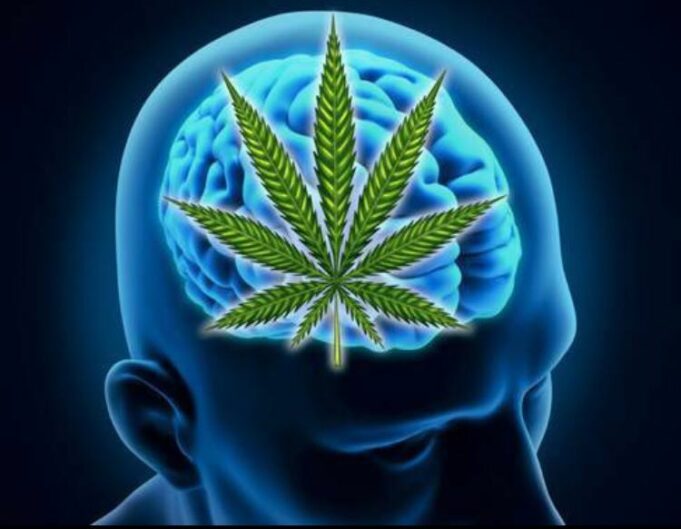Most of us have been warned since childhood of the dangers of physically addictive substances such as alcohol and hard drugs. Less often do we hear about substances that aren’t necessarily physically addictive- can the potential for abuse and psychological addiction be dangerous in and of itself? Both marijuana and its by-products are increasingly being recognized in the discussion, both scientific and mainstream, for a myriad of potential health benefits. But what happens when a positive and natural thing becomes psychologically addictive and results in negative consequences?
As stated by American scientist Loren Cordain when writing about the potential physiological consequences of marijuana use- “All plant compounds- either smoked or ingested- entering our bodies on a regular basis, just like any other nutritional or dietary element, will have an effect upon our overall health.”
Marijuana use disorder, which is what it’s known as when use becomes a problem, can take the form of addiction in severe cases.
5 Signs You Might Be Addicted To Marijuana:
1.) Building Up A Tolerance and Experiencing Withdrawal Symptoms: If you consistently require smoking more and more to get high, then that can be a symptom of any kind of physiological addiction. If you experience any withdrawal symptoms such as anxiety, irritability, appetite loss, insomnia, or nausea then that can be a sign that your usage has become psychologically addictive to the point of resulting in physical symptoms as well.
2.) Continuing To Prioritize Marijuana Use Despite Legal and Workplace Consequences:
Some examples of such consequences would be using marijuana despite being on probation, being late for work / showing up high or just general under-performance on the job, as well as risking job security by smoking despite routine drug tests. Marijuana use can also be a safety hazard if your job requires operating vehicles or machinery. These things can all be signs that your usage has become psychologically addictive to the point of jeopardizing your income and stability.
3.) Viewing Your Relationships or Activities As Little More Than Opportunities To Get High: If you are primarily choosing relationships or activities based on whether or not it will involve getting high, this can be a sign that you are experiencing an addiction. Choosing and evaluating your relationships through the lens of any addiction will have consequences- you are depriving yourself and the people around you of a deeper human connection, which can negatively affect your mental health over time.
4.) Wasting Time and Money That You Can’t Afford To Spare: If spending money on marijuana takes priority over paying bills, buying food, or other necessary expenses then that can be a sign of an addiction. Also, if getting high is monopolizing time that would be better spent with your loved ones or working towards any goals you have, then that can be a sign of an addiction. Anything that results in neglecting your responsibilities is a problem. Self-sabotaging behaviors that waste your money and/or time and take priority over truly important people or things are trademarks of an existing or emerging addiction.
5.) Using Marijuana As An Escape: We all have things we’d rather escape from, whether metaphorically or literally, from time to time. But, when any substance or activity becomes a chronic rather than occasional escape mechanism, it then causes us to live in denial while the underlying problems and stressors fester and then develop into even bigger problems that we will eventually have to deal with.
Solutions:
If you think you may be struggling with an existing or emerging addiction, you may find yourself wondering where to go from here.
If you think you may be addicted to using marijuana, the first step is having an honest and open conversation with yourself. Some questions to ask yourself: Did you begin using marijuana for social or otherwise recreational purposes, or for medicinal benefits? Are the benefits you may be experiencing worth any social, financial, or legal consequences you may also be experiencing? Are you experiencing any side effects such as memory loss, loss of appetite, or increased anxiety?
If your marijuana use is primarily social or otherwise recreational, it’s worth considering letting your body detox for at least a few weeks and then, depending on how you feel, quitting altogether or resuming use, with reduced frequency and amounts. In legalized states, you can seek out specific strains that have lower THC levels. If you’re using marijuana primarily or solely for medicinal purposes, consider switching to CBD products that contain little or no THC.
Bottom line- anything we put into our bodies and minds will have consequences, whether positive or negative. Even natural, beneficial substances can become a problem when abused. Above all else, listen to your body and take a wider look at how your habits are influencing your finances, your job, your relationships, and your mental and physical health and don’t be ashamed to reach out for help if you need it. Just about anything has the potential to become addictive- struggling with an addiction to something that may not be physically addictive does not negate your struggle or your validity in seeking help if you decide you need it. There is nothing wrong with you if this is a struggle for you- everybody is different and you deserve to live a balanced, healthy life.





